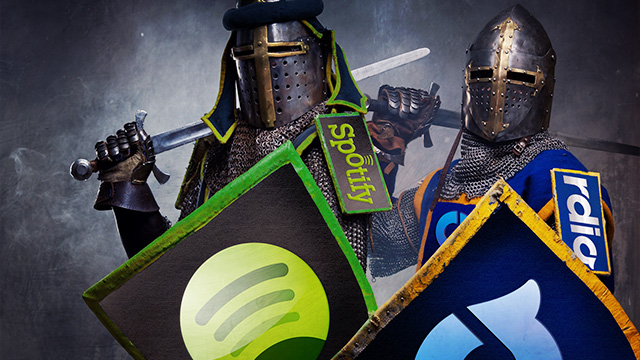-
Tips for becoming a good boxer - November 6, 2020
-
7 expert tips for making your hens night a memorable one - November 6, 2020
-
5 reasons to host your Christmas party on a cruise boat - November 6, 2020
-
What to do when you’re charged with a crime - November 6, 2020
-
Should you get one or multiple dogs? Here’s all you need to know - November 3, 2020
-
A Guide: How to Build Your Very Own Magic Mirror - February 14, 2019
-
Our Top Inspirational Baseball Stars - November 24, 2018
-
Five Tech Tools That Will Help You Turn Your Blog into a Business - November 24, 2018
-
How to Indulge on Vacation without Expanding Your Waist - November 9, 2018
-
5 Strategies for Businesses to Appeal to Today’s Increasingly Mobile-Crazed Customers - November 9, 2018
Rise in popularity of Spotify reduces music piracy
When Spotify launched its first beta in the fall of 2008 we branded it “an alternative to music piracy”. The streaming service causes users to download less music through torrents. Now a new study from the European Commission’s Joint Research Centre has set out to put the debate to rest. Swift notoriously ditched Spotify when she released 1989 and many credit this to the extreme popularity of the album, while many others have accepted that Spotify and similar streaming services are necessary in an increasingly technological music industry where locating illegal music is just all too easy. They concluded that, for every 47 streams on Spotify, one less illegal download is committed.
Advertisement
“This piracy displacement is consistent with [Daniel] Ek’s claim that Spotify’s bundled offering harvests revenue from consumers who – or at least from consumption instances – were previously not generating revenue”, says the report.
The conclusion bolsters the previous claims of Spotify’s CEO Daniel Ek, who has stated that Spotify use helps counter piracy. Combining this with data from Spotify, the researchers were able to establish two interesting results. As a post on TorrentFreak puts it: “Based on this data the researchers conclude that Spotify has a clear displacement effect on piracy”.
As mentioned earlier, it also turns out services like Spotify have a negative effect on other legal methods of obtaining music.
The study is also timely, since the labels and Spotify are haggling over new distribution contracts – and YouTube, the world’s biggest digital music service, is about to do the same.
Advertisement
The big takeaway? They found that Spotify was basically revenue neutral for the music industry. “In other words, our analysis shows that interactive streaming appears to be revenue-neutral for the recorded music industry”. Even if they displace sales, streams may however still raise overall revenue if the streaming payment is large enough in relation to the extent of sales displacement. Artists receive about $0.82 ( €0.75) from Apple for each sold number, while the average payment received per stream is no more than $0.007 ( €0.01).





























